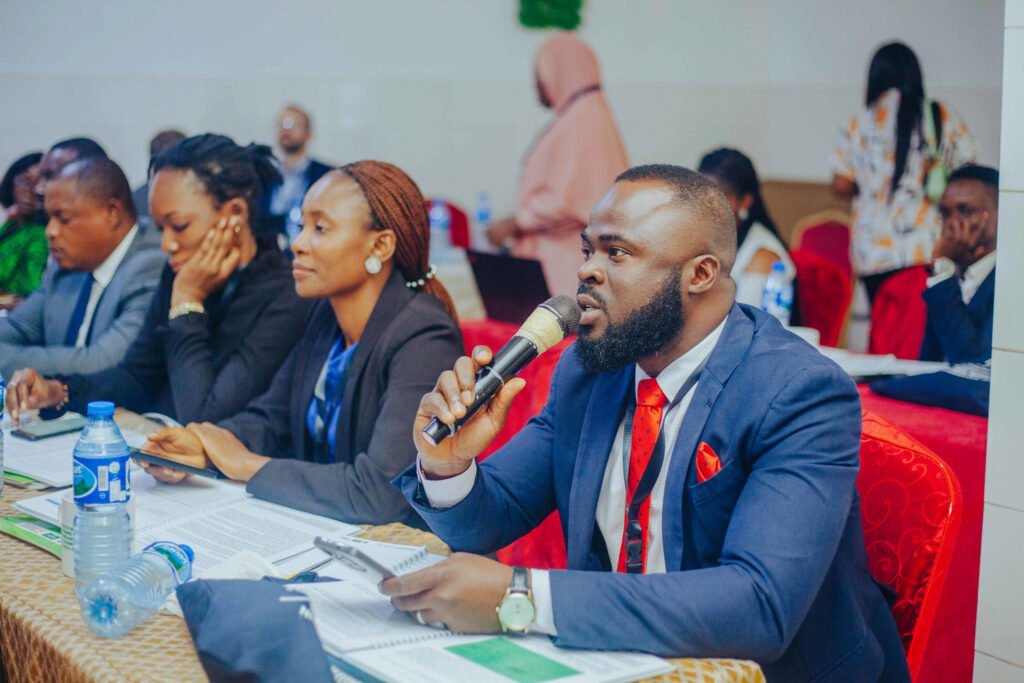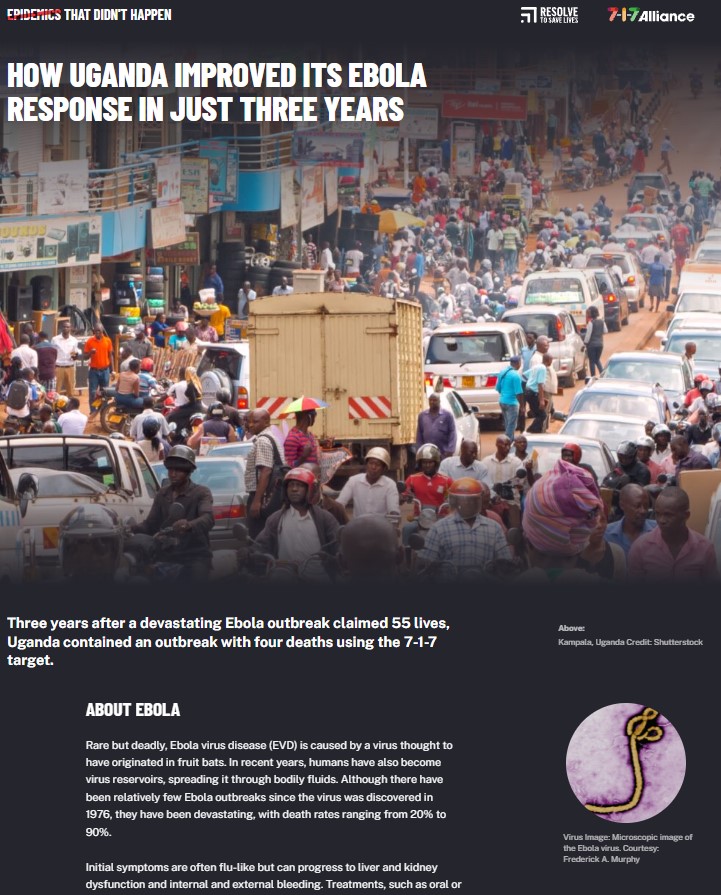(Above) Participants at a legal training workshop, including legal officers from federal and state ministries, departments and agencies in Nigeria.
We spoke with Emem Udoh, a senior legal advisor at Resolve to Save Lives, to find out how his team is using state-level legal reforms to keep Nigeria safe from public health threats.
We often talk about national and international health security. Why is subnational important?
Global and national health security are important but can sometimes feel abstract. Especially in a federal state like Nigeria, the subnational level is where much of the action takes place! Strengthening state-level health security is essential because it directly underpins national and international efforts. Nigeria’s size and complexity mean that national health security cannot be fully achieved without robust subnational systems.
The International Health Regulations (IHR 2005) emphasize containing outbreaks at the source, and the recent amendments place greater importance on local implementation. Our work in Nigeria reflects this shift—preparedness at the national level alone isn’t enough. We need to ensure that states have the capacity, legal frameworks and resources to detect, respond to and prevent health threats. Through this, our efforts ultimately strengthen the entire country.
How have you been strengthening state-level legal frameworks so far?
Our work so far has involved legal analysis, training legal officers and supporting state-level reforms. Between 2019 and 2021, we conducted an initial legal analysis to assess the state of health security laws at both federal and state levels, using a tool adapted from WHO guidance. This helped us understand how IHR was being implemented across states in terms of legal reforms. From there, we advanced our work through three main initiatives.
First, we developed a subnational legal assessment tool to standardize assessments across Nigeria’s 36 states. Next, we designed a curriculum for legal officers, launched in 2022 and expanded in 2024, to train both state and federal officers on legal assessment of IHR capacities, and best drafting practices. Finally, we created a model subnational health security bill to help states streamline and contextualize their legal reforms. These initiatives provide a structured approach to strengthening state-level health security.

Who have been your primary partners in executing these activities?
Partnerships are essential for the success of this work! Our primary partner is the Nigeria Centre for Disease Control and Prevention (NCDC), which plays a critical role as a coordinating body for legal developments at the state level. We supported NCDC to ensure it can lead legal reform discussions and facilitate smoother engagement between federal and state governments.
Civil society organizations (CSOs) also play a vital role—particularly those specializing in health security, legal drafting and advocacy. A network of state-based CSOs helps keep reform efforts moving forward by engaging stakeholders, organizing advocacy forums and fostering trust between state ministries. Furthermore, we strategically leveraged resources from development partners, notably Lafiya Palladium, to support ongoing legal reform efforts across various states. Lafiya provided critical support for convening stakeholder meetings and engagement sessions, which significantly contributed to securing broad-based buy-in and acceptance of the proposed legal instruments, including draft public health bills for Kano, Kaduna and Jigawa states.
Additionally, at the state level, the leadership of state governments is crucial, as they hold the ultimate authority to enact and implement health security laws.
What have been the biggest impacts of your work so far?
The momentum for legal reform is growing across Nigeria! Kano State led the way by successfully passing a landmark health security bill, ultimately aligning the state with international standards. Kaduna and Jigawa States have followed the successful example set by Kano State by enacting their respective public health and health security laws. Notably, all three states adopted the legal reform methodology introduced by our team!
This approach has proven instrumental in deepening understanding of health security issues and strengthening the legal frameworks that govern health and epidemic preparedness at the subnational level. Following the successes in the three states already discussed, Ogun and Nasarawa States quickly initiated similar processes. And within just 12 months, these states moved from initial discussions to submitting legislation for passage. This work is supporting capacities at the state level, ultimately saving lives by more effectively stopping outbreaks.
What’s next for you and your team?
Scaling up our efforts is the next priority! We are expanding our legal reform work across additional states to create a truly national impact.
To support this expansion, we are developing guidance documents and best practices that will streamline the process for other states looking to strengthen their health security laws. The goal is to build a sustainable framework where legal reforms become an integral part of public health planning. By continuing to strengthen legal foundations at the state and local levels, we are reinforcing Nigeria’s ability to prevent, detect and respond to health threats more effectively.



